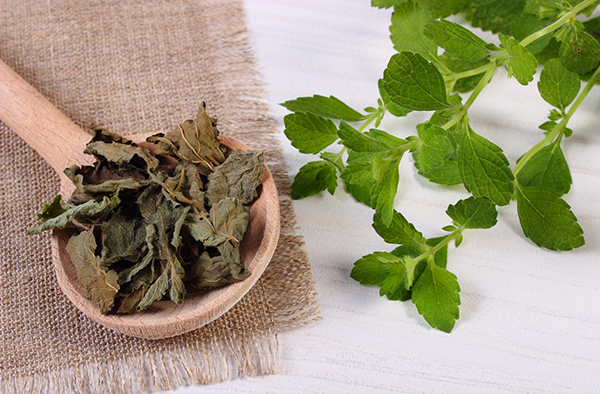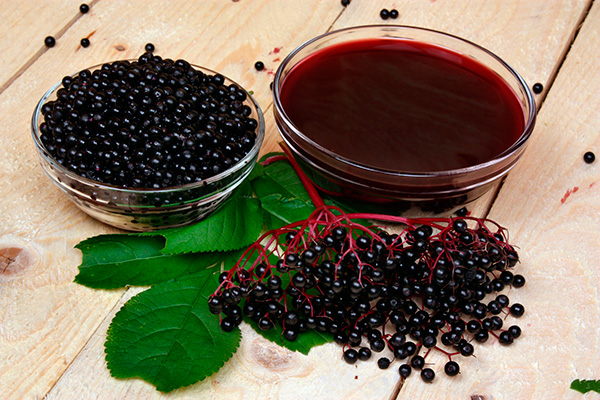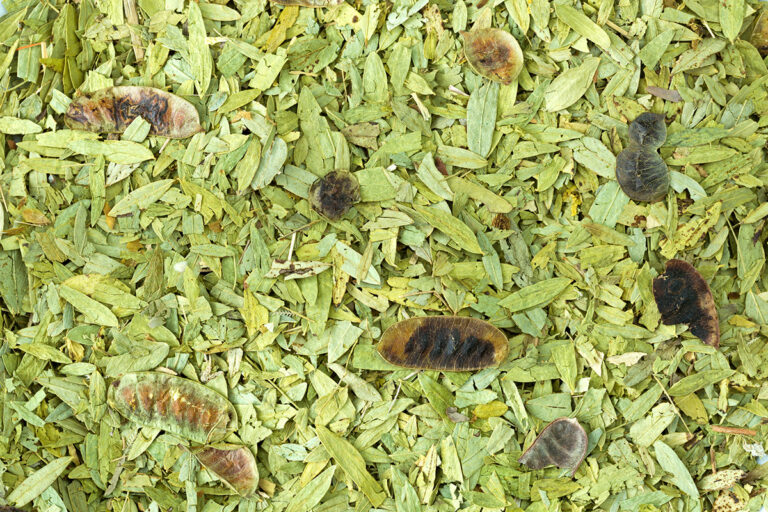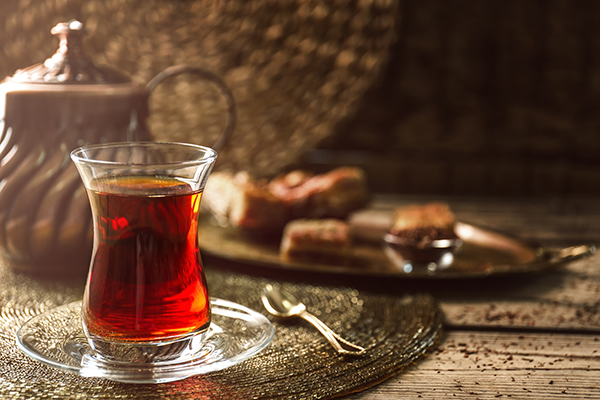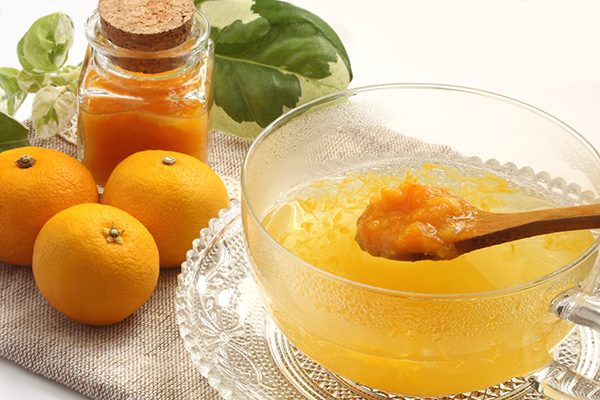Does Herbal Tea Stain Your Teeth?
Many health-conscious individuals opt for herbal tea, but are there any downsides to this choice? One of the most common questions is whether herbal tea can stain teeth.
So, does herbal tea stain teeth? It is important to consider the type of herbal tea. While most herbal teas are considered “Tisanes” and do not typically cause staining, those with higher acidity and tannins have a greater potential to discolor teeth.
Now that you have the short answer let’s delve deeper.

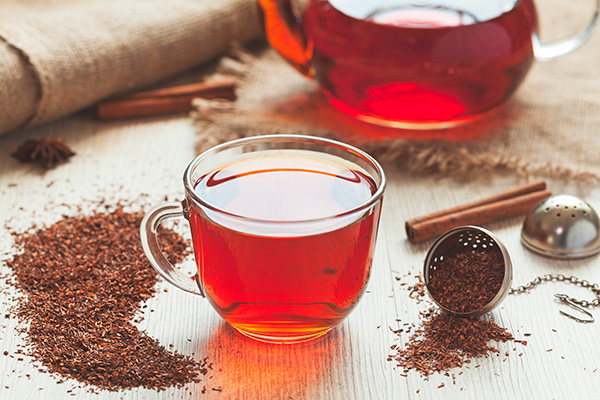
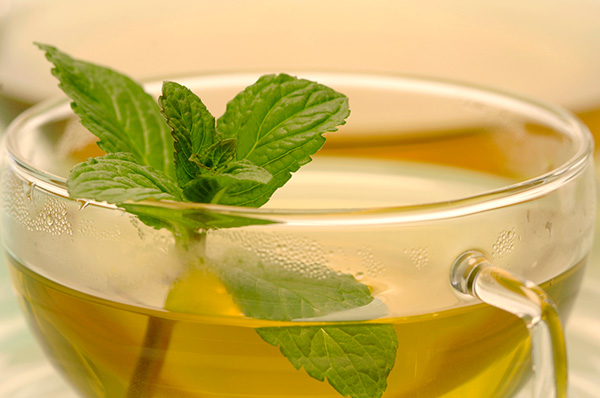
Does Herbal Tea Stain Teeth?
Did you know that herbal tea isn’t tea? It’s because it’s not sourced from the Camellia sinensis plant. Instead, herbal teas are made from herbs, flowers, and fruits. Infused or botanical teas are terms often used to describe these types of teas.
While some herbal teas may cause teeth stains, they are generally less intense than those caused by traditional black, green, or yellow tea varieties.
However, there can be exceptions. Factors like acidity levels and tannin content can affect whether or not an herbal tea will stain teeth.
Additionally, naturally sweet fruit or flower-infused herbal teas may have more potential for staining teeth. Hibiscus is among the herbal teas that cause teeth stains when consumed regularly.
What Components of Herbal Teas Generally Causes Teeth Stains?
So we’ve mentioned a few times already that the content of tannins and tea acidity may influence whether tea can cause teeth stains. But what are those, and which herbal teas are more likely to cause stains?
Tannins in Herbal Teas
Tannins are chemical compounds in many plant-based foods and beverages, including tea. They contribute to tea’s dry, slightly bitter taste and give color to certain types of tea.
Despite containing tannins, herbal teas typically have lower levels than traditional tea. As a result, herbal teas are less likely to cause teeth stains than their tea counterparts.
However, it’s worth noting that certain herbal teas with high tannin content can still cause teeth stains if consumed regularly.
The following herbal teas contain high levels of tannins:
- Cinnamon
- Cloves
- Guarana
- Hibiscus
- Nettles
- Red raspberry
- Rosehip
- Sage
- Slippery elm
- Thyme
- Turmeric
- Yerba mate
While there is limited scientific evidence to back this claim up, Rooibos is often considered to have the lowest tannin levels among herbal teas.
Acidity in Herbal Teas and Teeth Stains
Herbal tea can cause teeth staining primarily due to its pH level. If the tea is highly acidic, it is more likely to leave stains.
When acidic herbal tea comes into contact with teeth, it weakens the enamel over time, resulting in discoloration and stains. Continued exposure to high acid levels can eventually wear away at the enamel and cause tooth erosion.
So, What pH Is Considered Acidic, and What Are the pH Levels of Different Herbal Teas?
A drink is classified as acidic when its pH value is below 7, whereas a pH above 7 indicates alkalinity.
Wondering about the acidity levels of commonly consumed herbal teas? Here’s a quick summary.
| Teas and Herbal Teas | pH Level |
| Green Tea | 7-10 |
| Black Tea | 6-7 |
| Chamomile | 6-7 |
| Mint | 6-7 |
| Fennel | 6-7 |
| Lemon | 3 |
| Rosehip | 2-3 |
| Blackberry | 2-3 |
Remember, a lower pH number in tea increases the chances of staining and potential damage to teeth.
Certain fruit-based herbal teas are highly acidic and can contribute to teeth staining, in addition to the factors mentioned earlier.
For herbal teas with a neutral pH range, here are the factors that can increase their acidity levels:
- Steeping time: The more the tea is steeped, the darker and potentially more concentrated and acidic it may become.
- Dilution: It’s advisable to dilute neutral pH teas as much as possible.
- Additives: Citrus flavoring and acidic herbs can increase the acidity of herbal tea.
- Sourness: The acidity of tea generally increases with its sourness.
To prevent herbal teas from becoming too acidic and causing dental issues, it’s advisable to dilute them and aim for a more neutral pH level. Furthermore, adding raw milk in small amounts can help lessen the acidity.
Chromogens
Chromogens are natural pigments found in tea that are responsible for its color. Contact between tooth enamel and these compounds can lead to tooth staining. The longer the exposure to chromogens, the more likely they cause discoloration.
Herbal teas also contain chromogens; however, the levels are generally lower than traditional teas made from the Camellia sinensis plant. Flavonoids and anthocyanins are compounds responsible for the distinctive colors of herbal teas.
How to Prevent Teeth Stains From Herbal Teas?
To prevent herbal tea from causing teeth discoloration, there are several measures you can take:
- Drink through a straw: Using a straw can help reduce the risk of staining by minimizing contact between the tea and your teeth.
- Rinse your mouth with water: Rinsing your mouth with water after drinking herbal tea can help wash away any residual chromogens that may have adhered to your teeth.
- Brush regularly: Brushing your teeth regularly can help remove surface stains before they become embedded in tooth enamel.
- Use whitening toothpaste: Whitening toothpaste contains abrasive particles that can help scrub stubborn stains on your teeth.
- Visit your dentist regularly: Regular dental cleanings can remove built-up plaque, which can contribute to discoloration.
You can enjoy the health benefits of herbal tea worry-free by following these tips to prevent teeth staining.
Conclusion
Herbal teas are a great way to enjoy herbs’ health benefits without worrying about tooth decay and erosion.
While many herbal teas aren’t likely to stain teeth, certain ones may be acidic and still cause stains. You can still enjoy your favorite herbal teas and maintain your smile by taking simple measures like drinking a straw, rinsing with water, brushing regularly, using whitening toothpaste, and visiting your dentist for regular cleanings.

